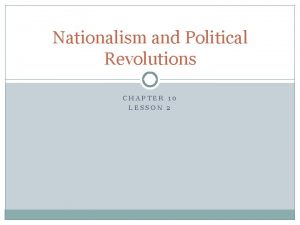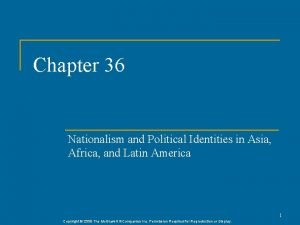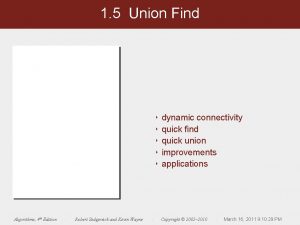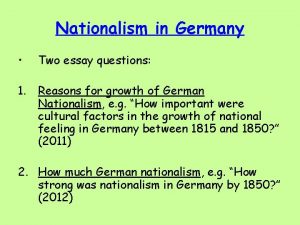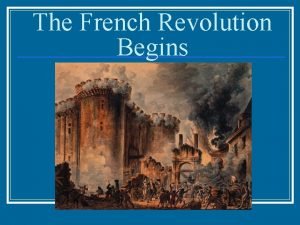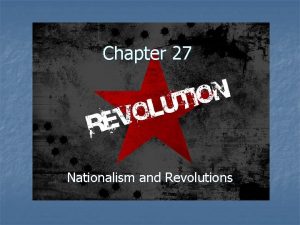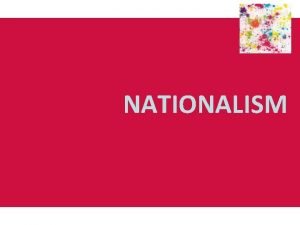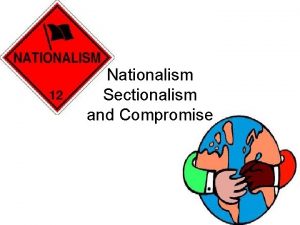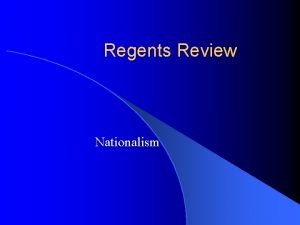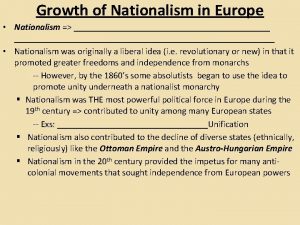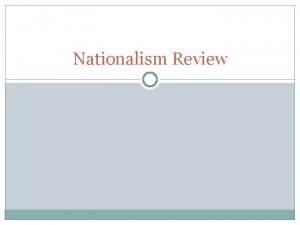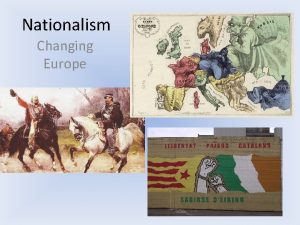Nationalism and Political Revolutions A Quick Recap French













- Slides: 13

Nationalism and Political Revolutions

A Quick Recap �French Revolution had failed to keep republic �Metternich (Austrian prime minister) pushes for conservatism �Congress of Vienna meets to balance European power �Conservative monarchs put back in power


Nationalism and Liberalism � Revolutionary ideas spread to other European nations � Countries affected: � German states � Prussia � Italy � Poland � Belgium � France Remember the Differences: � Nationalism � National independence or unification main motivation � Liberalism � Desired reforms within the state (not to break away)

Liberal Revolts � Sought more voting rights and better working conditions � Argument for universal male suffrage (UMS) �More successful in France and Britain � After a 2 nd revolution, France parliament elected by UMS � Britain gives right to vote to middle class

Revolutions Recap Revolutions of the 1830 s �France establishes a new limited monarchy �Belgium gains independence from Dutch Republic Revolutions of 1848 �Failed German unification �Failed revolution attempts against Austria

Revolt in German States �German Confederation (38 German states) �Austria and Prussia biggest �Denmark and France also control some territories �Frankfurt Assembly formed to draft new liberal constitution �Wanted a unified German state �Did not gain support from Frederick William IV of Prussia

Rise of Prussia � Has become a powerful European state by 1860 s � Known for its militarism (reliance on military strength) � Army attempts to increase size; legislature refuses to provide funding � New leader of Prussia: Wilhelm I

Otto von Bismarck � Prussian chancellor (advises the king) � Practiced “realpolitik” � Politics based off of reality, not ethics � Unify German through any means � Raised powerful military � Done without approval of legislature

Strongest Power in Europe �Successfully defeats Denmark and Austria � Wanted Alsace-Lorraine (owned by France) �Franco-Prussian War (1870�William I becomes Kaiser 71) � France loses key providences � “Caesar” of Second German Empire

Independence in Mexico � Spanish control weakening in September 16 Mexican Independence Day Latin America � Revolt led by Miguel Hidalgo in Mexico � Revolution crushed and Hidalgo executed � Inspired other attempts � Peninsulares and Creoles overthrew Spanish rule � Independence declared in 1821 � Monarchy--->Republic in 1823 Augustin de Iturbide 1822 -1823

Nationalism in the U. S. �Conflicts over states rights and slavery lead to conflict between North and South �Civil War (1861 -1865) � ~800, 000 casualties � South failed to secure independence �North � Industrialized � Abolitionist (wanted slavery to end) �South � Agrarian � Feared laws that would end slavery

 Lesson 2 nationalism and political revolutions
Lesson 2 nationalism and political revolutions Just a quick recap of what we discussed
Just a quick recap of what we discussed Chapter 35 nationalism and political identities in asia
Chapter 35 nationalism and political identities in asia Chapter 36 nationalism and political identities in asia
Chapter 36 nationalism and political identities in asia Quick find vs quick union
Quick find vs quick union 1.7.6 - quick check: frost quick check
1.7.6 - quick check: frost quick check Political nationalism
Political nationalism Romeo and juliet act 1 summary
Romeo and juliet act 1 summary The french revolution political causes
The french revolution political causes Analysis
Analysis Marie antoinette and lafayette cartoon
Marie antoinette and lafayette cartoon Shawshank redemption summary
Shawshank redemption summary Summary of chapter 8 gatsby
Summary of chapter 8 gatsby Price matching
Price matching
